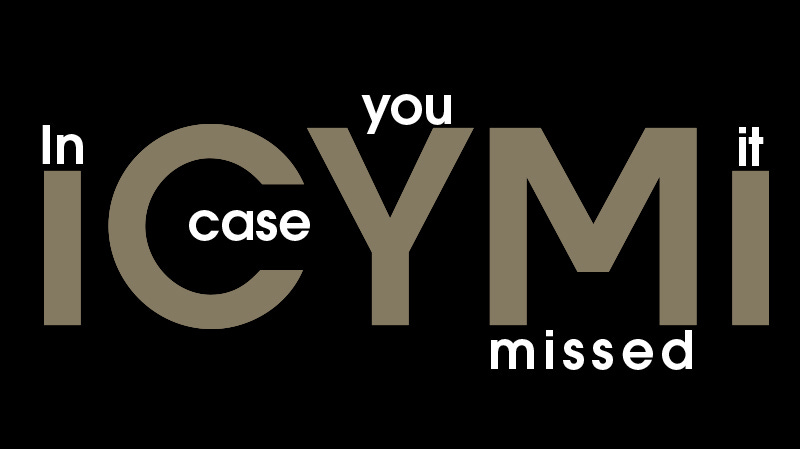
Editor’s note
Today’s EB goes out to everyone. But please become a member if you aren’t already. You can check by clicking the red button. If it says “Thank you for being a subscriber,” you’re a member. If it doesn’t, you’re not. Please join the Board today and get a month free! —John Stoehr
The prudence of impeaching the attorney general appears to be catching on. In the last 24 hours, two Democrats have floated the idea of indicting William Barr. Seth Moulton and Eric Swalwell are fairly minor figures (though each is running for president). But new currents never start from the center. They begin at the margins. If more Democrats float impeachment, especially the leaders, we’ll know it’s coming.
As of now, the Democrats are moving forward step by painfully methodical step. Jerry Nadler, the chairman of the House Judiciary Committee, said yesterday that he’d give Barr one more chance to turn over the full and unredacted version of the Robert Mueller report. NBC News reported last night that Nadler is also negotiating directly with the special counsel. There’s potential for Mueller himself to testify. If Barr fails to comply, Nadler said, he’s prepared to hold a vote for contempt of Congress.
What does that mean? Ted Lieu sits on Nadler’s committee. He’s a former member of the US Air Force Judge Advocate General’s Corps. He walked through the steps yesterday. Note the end when he says a floor vote on contempt could be weeks away.
Note also that Lieu mentions two other things: one is a fine. That’s not something we 21st century citizens would balk at. If the attorney general refuses to comply with a lawfully issued subpoena by the US House of Representatives, most of us would be OK with the chamber imposing on him a daily penalty. It’s the second thing Lieu says that might trouble you. He said there used to be a “House jail.” He says he doesn’t think the House will go that far. But Martin Longman says that’s not out of the question.
Marty is a senior editor at the Washington Monthly. In a thought-provoking piece published last week, my good friend explained that Congress’s “inherent contempt power” once included jailing people. Congress felt it had to, because the Justice Department, which enforces federal law, is under the executive’s purview.
Power doesn’t mean anything if unused. Crime doesn’t mean anything if unpunished.
If the president refused to investigate a criminal referral by the Congress, what’s the people’s branch supposed to do? Marty wrote that it “could create a select committee dedicated to compelling the enforcement of their subpoenas.” That could result in sending its law enforcement officer, the Sergeant-At-Arms, to arrest the offender.
I don’t think the House is going to go that far any more than Congressman Lieu does. (Marty wrote that “Congress needs to get rough with non-complying witnesses and lock ’em up.”) But the larger point, I think, is about the nature of our government.
The Congress is the supreme branch. The Constitution gives it the most power, because it represents the people. But power means nothing if unused. In the past, when the executive pushed hard, the legislature pushed back harder. If that meant arresting people the executive branch wouldn’t arrest, lawmakers said so be it.
I think it’s appropriate for the Congress to take such measures, however extreme they may seem, because the alternative is worse. If there is no check on the president’s power, he’s not a president anymore. He’s a monarch. And monarchs are not accountability to any of us. That’s contrary to our history, values and Constitution.
I spend a lot of time discussing the politics of impeachment. I’ve written thousands of words about the political reality of facing a lawless president who views himself as beyond reproach. There is still a lot to discuss, but we shouldn’t lose sight of the stakes. Trump is blocking access to documents and people whom the Democrats need to oversee the executive. In blocking the Congress, he’s saying checks and balances don’t matter. He’s saying his power is unlimited. That’s not what America is about.
This isn’t hard. In fact, this is the easiest of all political arguments to make. It comes naturally to every one of us. It only seems hard because Trump is protected by a Republican Party that can win without majorities and by a gigantic right-wing media apparatus that lies wholesale, preventing voters from seeing the facts. This more than anything is why Trump’s approval rating has been over and under 41 percent for months. This more than anything is why the president hasn’t yet been impeached.
Nancy Pelosi said Barr lied and “that’s a crime.” But saying the right thing is different from doing the right thing. At some point, the Democrats will be complicit by way of inaction in steering us away from self-rule and down the road to serfdom. Fortunately, we haven’t yet reach that point. I think the Post’s Amber Phillips is right. She said that “by accusing Barr of a crime and threatening to hold him in contempt of Congress, [Pelosi is] signaling a willingness to do something to someone close to Trump.”
That’s good, but it can’t end there. Power doesn’t mean anything if unused.
Crime doesn’t mean anything if unpunished.
—John Stoehr

IN CASE YOU MISSED IT
LAST THURSDAY
Systemic Presidential Lawlessness (membership req’d)
Trump plans on “fighting all the subpoenas.” What now?
LAST FRIDAY
Biden's Asset? He's Tolerable (public)
More importantly, is he up to the challenge?
MONDAY
Trump Injures America 10,000 Times (public)
Lying with such frequency and malice
TUESDAY
New Era of Apartheid Politics (public)
The long era of bipartisan compromise is dead.
WEDNESDAY
Barr's Obstruction of Congress (public)
He swore to tell the whole truth. He didn't.
THURSDAY
Barr Is Asking for Punishment (public)
The Democrats should oblige him.

BECOME A MEMBER AND GET A MONTH FREE!
Go to stoehr.substack.com for more information or click to red button! ↓


